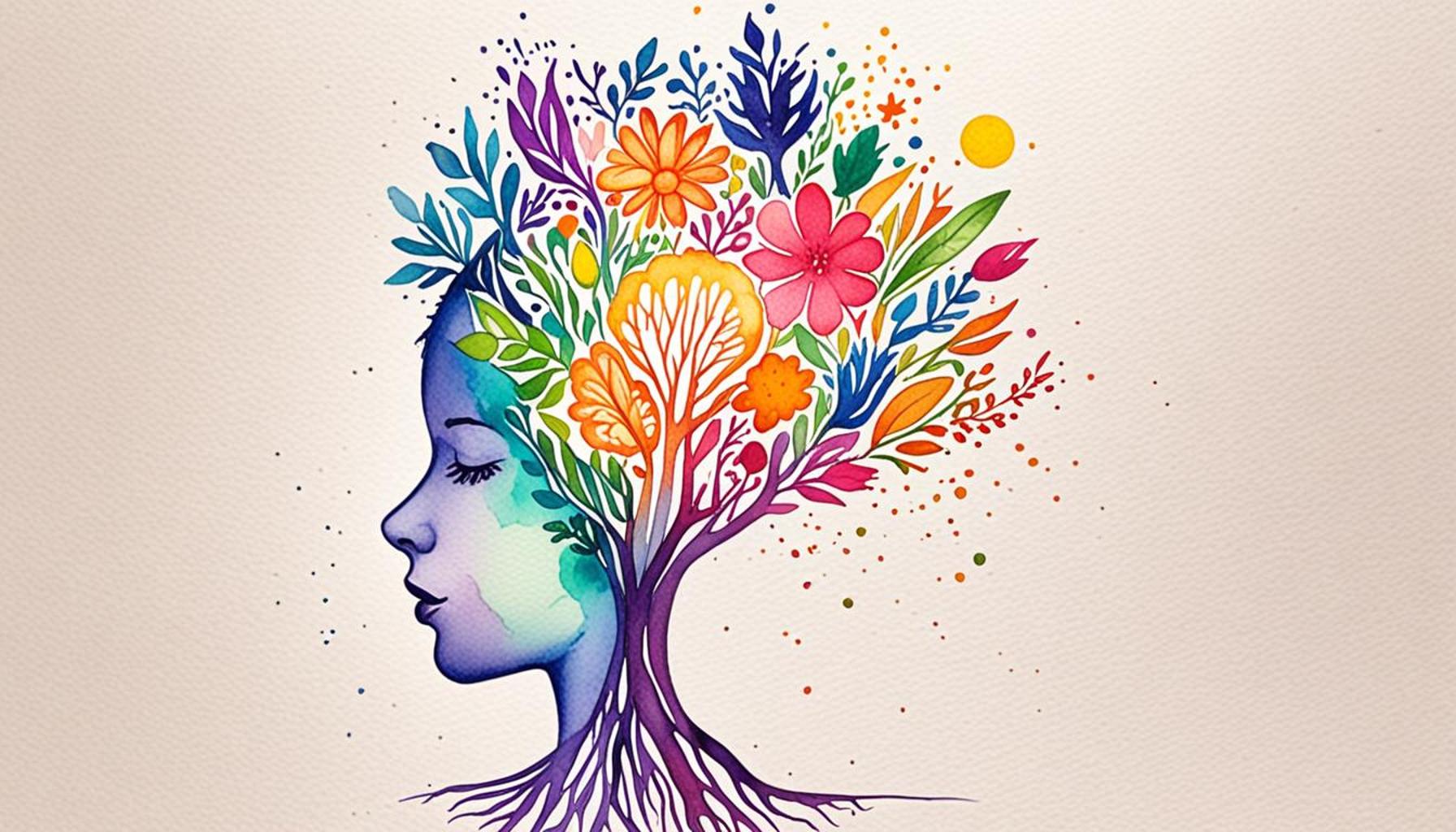Project-Based Learning Strategies to Foster a Growth Mindset

Unlocking Potential through Project-Based Learning
In today’s rapidly evolving educational landscape, fostering a growth mindset among students is crucial. The concept encourages learners to embrace challenges and persist in the face of setbacks. One effective way to instill this mindset is through project-based learning (PBL), an approach that engages students in real-world problem-solving, making education not only a theoretical exercise but also a practical one.
Project-based learning allows students to:
- Investigate topics they are passionate about, which increases motivation and engagement.
- Collaborate with peers and learn from diverse perspectives, enhancing social skills and teamwork.
- Develop critical thinking and communication skills vital for success in today’s dynamic job market.
In Nigeria, educators can leverage local contexts to make learning more relevant and impactful. For instance, projects can focus on:
- Environmental sustainability in communities: Students might explore projects that assess local water quality or develop campaigns to reduce plastic waste in their neighborhoods.
- Innovative solutions to local agricultural challenges: Initiatives could involve creating sustainable farming techniques or implementing community gardens to address food security issues.
- Entrepreneurial ventures addressing social issues: Students could brainstorm business ideas that tackle unemployment or access to education, fostering both creativity and practical skills.
As students engage in these hands-on projects, they learn to view failures not as setbacks but as opportunities for growth. This shift in perspective cultivates resilience, teaching students that perseverance is key to overcoming obstacles, which is particularly important in a developing nation like Nigeria. PBL not only enhances academic knowledge but also builds adaptability—key traits needed in a globalized world.
Navigating the Journey
This article explores various project-based learning strategies designed to nurture a growth mindset. For example, incorporating reflection sessions where students discuss what they learned and areas for improvement can solidify their understanding and foster a culture of continuous learning. By encouraging them to set personal goals based on their project experiences, educators can cultivate an environment that values growth alongside achievement.

Additionally, the integration of technology can also play a vital role. Utilizing digital tools for research and collaboration can broaden students’ horizons, exposing them to a world beyond their immediate environment. This multidimensional approach ensures that students not only gain academic knowledge but also become well-rounded individuals ready to tackle the challenges of the future.
Join us as we delve deeper into this transformative approach to education, exploring specific techniques and real-world applications that can unlock the potential of students across Nigeria.
YOU MAY ALSO LIKE: Read read another article
Strategies to Cultivate a Growth Mindset through PBL
Project-based learning (PBL) serves as a powerful vehicle for cultivating a growth mindset. This educational approach not only accommodates different learning styles but also provides opportunities for students to experience learning as a journey rather than a destination. By integrating specific strategies into PBL, educators can effectively nurture this mindset among students, inspiring them to embrace challenges and learn from failures.
One foundational strategy involves incorporating real-world applications into projects. When students engage with topics that resonate with their communities or personal interests, their intrinsic motivation increases. For example, students may work on a project focused on designing solar ovens to help combat energy issues in rural areas. This not only applies scientific principles but also develops problem-solving skills as they figure out how to create an efficient and sustainable energy solution. Such hands-on experiences can significantly shift students’ perceptions of learning, illustrating that mistakes are essential stepping stones to success.
Another crucial component in PBL is fostering a culture of reflection. Reflection sessions, where students can discuss what went well, what challenges they faced, and what lessons they learned, encourage an environment of open dialogue and continuous improvement. By inviting students to share their stories, educators create a safe space where vulnerability and growth go hand in hand. This engaging practice helps students recognize their progress and inspires them to set personal academic and interpersonal goals.
To further enrich these experiences, incorporating collaborative learning is essential. PBL naturally lends itself to collaboration, allowing students to work in groups, share responsibilities, and learn from each other. For instance, a project aimed at improving local sanitation could be tackled by students dividing tasks such as research, data collection, and outreach. Through teamwork, students cultivate communication and conflict-resolution skills while learning the valuable lesson that collective efforts often yield superior results compared to individual attempts. This social interaction not only enriches their understanding of diverse perspectives but also reinforces the belief that everyone can contribute to a common goal.
Additionally, leveraging technology in the PBL process can help students adapt more readily to the challenges of modern learning environments. Utilizing online tools for research or collaborative platforms can enhance their project outcomes while expanding their knowledge beyond textbooks. For example, students can connect with experts via video conferencing or participate in online forums to gather feedback on their projects. This exposure to digital resources encourages them to become independent learners, showcasing the importance of adaptability in a rapidly changing world.
Incorporating these strategies within the framework of project-based learning equips students in Nigeria, and beyond, with the skills necessary for their future pursuits. By engaging with relevant issues, reflecting on experiences, collaborating with peers, and utilizing modern technology, educators can guide students toward a robust growth mindset that not only prepares them for academic success but ultimately transforms their lives.
| Advantage | Description |
|---|---|
| Enhanced Collaboration | Promotes teamwork and communication among students, essential for developing a growth mindset. |
| Real-World Application | Facilitates learning through projects relevant to students’ interests and societal issues, encouraging engagement. |
| Critical Thinking Skills | Cultivates analytical skills as students solve complex problems, a core component of a growth mindset. |
| Personalized Learning | Allows students to explore topics at their own pace and interest levels, promoting individual growth. |
Project-Based Learning (PBL) serves as a powerful pedagogical approach fostering a growth mindset among students. This teaching strategy not only enhances student engagement but also equips them with critical skills required in the real world. By working collaboratively in teams, students develop their communication abilities, which are essential for success in any career field.Additionally, when students embark on projects with real-world applications, they become more invested in their learning process. PBL encourages students to approach challenges creatively and critically, preparing them for future challenges. The environment created through PBL nurtures resilience, allowing students to understand that mistakes are part of learning, ultimately reinforcing their growth mindset.Incorporating PBL into educational settings can also lead to personalized learning experiences, where students delve into materials that resonate with their interests. This approach enhances their passion for learning, motivating them to overcome obstacles, thereby fostering a lasting growth mindset. The synergy of these advantages creates a robust framework for developing learners who are equipped to tackle the complexities of contemporary society.
CHECK OUT: Click here to explore more
Innovative Approaches to Enhance Growth Mindset through PBL
Expanding on the foundational strategies previously discussed, educators can also deepen the impact of project-based learning (PBL) by implementing mentorship programs that pair students with experienced community members or professionals. This initiative not only provides students with practical insights and firsthand experiences but also fosters a sense of belonging and support. For example, a high school project aimed at revitalizing local agriculture may have students connect with local farmers or agricultural scientists, gaining valuable knowledge on sustainable practices. Mentorship lays the groundwork for students to see their potential while learning from others’ journeys of perseverance and resilience.
Moreover, iterative feedback is critical in the PBL framework, guiding students through the learning process. Instead of waiting until the end of a project to assess final results, educators should provide ongoing feedback that allows for adjustments and improvements along the way. This could involve peer evaluations, instructor check-ins, or even self-assessments during various project stages. When students understand that feedback is a tool for their growth rather than a judgment of their abilities, they develop a more profound sense of agency in their learning path.
Excitingly, educators can introduce the concept of challenge-based learning as a potent complement to PBL. This strategy involves framing projects as challenges that require students to develop creative solutions to pressing issues. For instance, students may be tasked with designing an affordable water purification system to improve access to clean water in rural Nigerian communities. This challenge encourages innovation and critical thinking while emphasizing that the learning process is filled with obstacles that must be navigated — fostering resilience and a mindset that embraces difficulties.
Furthermore, utilizing celebrations of learning can be a motivator for students to engage with the learning process deeply. Organizing end-of-project presentations not only gives students a platform to showcase their work but also creates a celebratory atmosphere surrounding their efforts. Inviting community members, parents, and peers to these events allows students to receive validation for their hard work, reinforcing their belief in their capabilities and the value of their contribution to the community. Such celebrations can demystify learning and showcase that every project, regardless of its outcome, holds significance and learning potential.
Educators should also emphasize the importance of a growth-oriented language when interacting with students. Phrases that highlight effort, improvement, and perseverance can profoundly impact students’ self-perception. For instance, instead of saying, “You are so smart,” educators might say, “I’m proud of how hard you worked on that project.” This shift in language can help students internalize the idea that their abilities can be developed through dedication and persistence, fortifying their growth mindset.
Lastly, integrating social-emotional learning (SEL) components into PBL can bolster students’ emotional intelligence, complementing the cognitive skills they gain through projects. SEL activities such as role-playing, mindfulness exercises, and conflict resolution workshops can create a supportive environment where students learn to navigate their emotions effectively. Developing emotional awareness contributes to resilience, enabling students to approach challenges with confidence rather than apprehension.
By blending these innovative strategies into their PBL frameworks, educators in Nigeria and worldwide can substantially enhance students’ growth mindsets. As learners engage with challenges, reflect on their experiences, receive constructive feedback, and embrace mentorship, a transformative educational experience ensues — one that prepares them not just for academic success but for their future lives ahead.
LEARN MORE: This related article may interest you
Conclusion: Cultivating a Growth Mindset through Project-Based Learning
In conclusion, the integration of project-based learning (PBL) strategies offers a profound opportunity not only to enhance academic skills but also to cultivate a strong growth mindset among students. By incorporating elements such as mentorship programs, iterative feedback, and challenge-based learning, educators can create a dynamic classroom environment where students are encouraged to embrace challenges, reflect on their learning journey, and view setbacks as pathways to growth. As we observe the success stories from schools across Nigeria, it becomes clear that such methodologies empower students to think critically and creatively, essential skills in our ever-evolving world.
Moreover, through celebrations of learning and the strategic use of growth-oriented language, teachers can reinforce the belief that effort and persistence pave the way for achievement. This not only fosters resilience but also nurtures a supportive atmosphere conducive to emotional and intellectual development. The importance of integrating social-emotional learning (SEL) components further emphasizes the need for holistic education, where emotional intelligence is valued as much as academic success.
Ultimately, as educators in Nigeria and beyond implement these PBL strategies, they nurture a generation that views learning as a lifelong journey filled with opportunities for growth. Empirical evidence shows that when students feel supported and challenged, they are more likely to engage deeply with the material and develop the confidence needed to tackle future endeavors. Thus, embracing these innovative approaches can yield transformative outcomes, preparing students to not just excel academically, but also to thrive in an increasingly complex global landscape.


